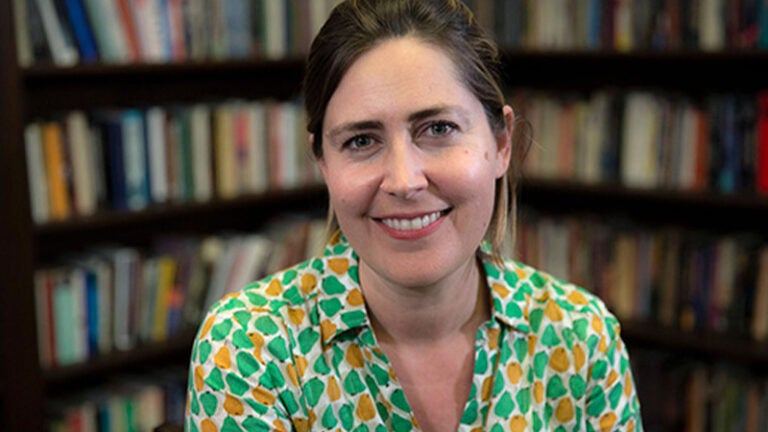
Founded as the pandemic hit, a new center gathers experts on the changing family
Founded just before COVID-19 disrupted how families live, the Center for the Changing Family at the USC Dornsife College of Letters, Arts and Sciences has become a hub for researchers studying families, stress and health at a time when there’s never been more public and policy interest in working mothers, child care and relationship issues.
Darby Saxbe, associate professor of psychology and founder of the center, recently explained that the center’s affiliated faculty study family systems, close relationships and mental and physical health across the lifespan. As a diverse group of scholars spanning multiple fields, they define “family” broadly.
The center recently marked its one-year anniversary. How did it get started?
Last year, USC Dornsife put out a call for faculty-led research working groups that were organized around a theme. I immediately thought the issues of families, stress and health would bring researchers together.
I visited different departmental websites and found someone in the sociology department who studies family conflict and working mothers’ employment; someone in the economics department who studies family relationships and health by neighborhood; faculty at the Keck School of Medicine of USC in pediatrics and at the children’s hospital — clinical psychologists who also work on child and family mental health. It ended up being pretty easy and fun to put together a list of experts that could be connected under the umbrella of a working group.
We were invited to submit a full proposal to be a center. Of the couple dozen working groups, they picked just a few to fund with three years of seed funding as a center, including ours.
And then the COVID-19 pandemic hit.
And these issues were suddenly on everyone’s minds as families dealt with lockdowns, remote learning, layoffs and other disruptive aspects of pandemic life.
The silver lining is it’s actually given us a focus and a voice at a time when there’s never been more public and policy interest in working mothers, child care and relationship issues.
Do you see this excitement and energy around this set of issues continuing post-pandemic?
I’m optimistic. I would like to think that we pulled back the curtain on a lot of challenges that have been going on for a long time and just became untenable during the pandemic. The fact that women’s workplace participation is now down to where it was in the 1980s — the fact that we’ve lost decades of progress on this — that’s not going to just get fixed overnight. I think there will be a continuing conversation about how we’ve neglected family issues as a society and what we need to do to have a more sustainable balance.
What have you learned from the survey of pregnant women you did early in the pandemic?
My lab has been studying a transition to parenthood. We do these lab studies where we bring couples in while they’re pregnant and then follow them after their baby is born. We do neuroimaging and other measures with them. All of that got shut down in March.
Within a few weeks, graduate student Alyssa Morris brought up that she was reading a lot of news stories about women having to give birth alone; stories about new babies who can’t see their grandparents and new parents who can’t get any child care support. We just started thinking about the impact of this on expectant parents. She suggested launching an online survey.
We adapted what we had been doing in the lab to investigate stress related specifically to COVID and social connection and disconnection. We posted it online in early April, thinking we might get 100 responses, and we got over 700 responses. What we found was elevated self-reported depression, anxiety and stress, and a lot less social support compared to our pre-pandemic data.
How does the pandemic’s impact on expectant families compare with that of earlier disasters?
Studies that have looked at the Sept. 11 attacks, Hurricane Katrina and the Northridge earthquake in California have tried to find out what happens to babies who were in utero when those big events happened. They’ve found there are differences in birth outcomes such as preterm birth and low birth weight. Some studies have suggested links between maternal mental health, postpartum stress and children’s development.
But what’s interesting about a lot of those natural disasters is frequently they bring communities closer together. What’s different about COVID is at the same time this huge pandemic was threatening our lives, we were also told that we couldn’t physically interact with each other. Pregnancy is a time where there’s a heightened need for connection and support, so one of the things I think we’ll find is the pandemic will take a different toll than prior disasters.
Of course, the pandemic has had such different impacts, depending on race and ethnicity and economic security. We see these really striking disparities, which we’re going to continue to look at in our follow-up surveys with these families. As our center turns one year old, so do some of the babies of the couples we surveyed in the early stages of the pandemic.